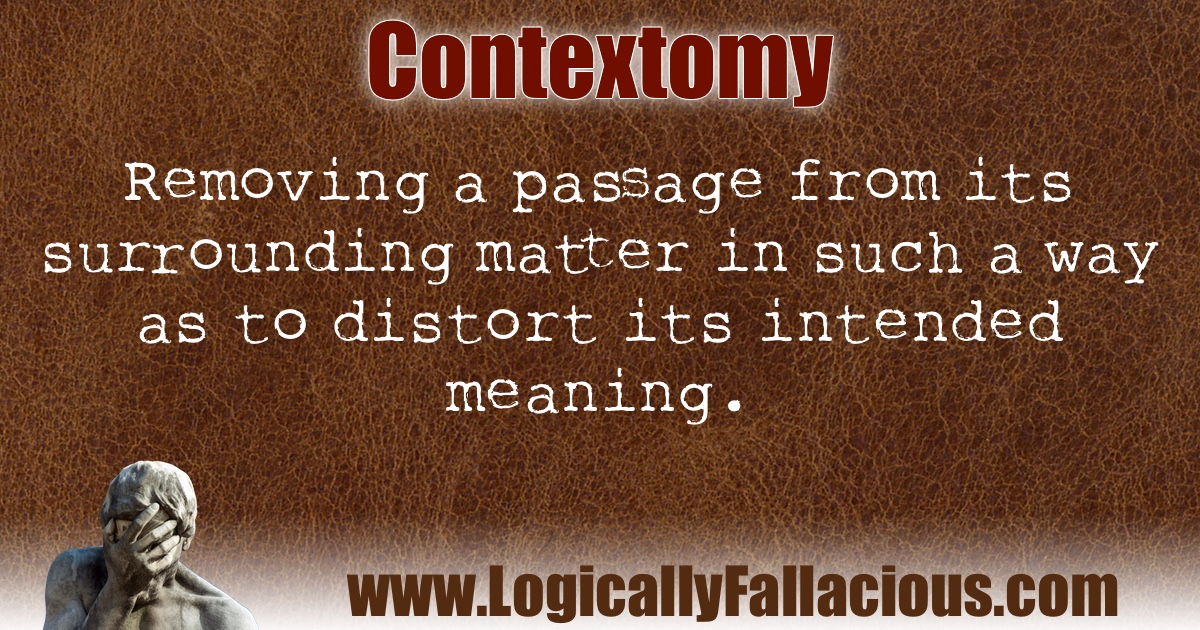(also known as: fallacy of quoting out of context, quoting out of context)
Description: Removing a passage from its surrounding matter in such a way as to distort its intended meaning.
Logical Form:
Argument X has meaning 1 in context.
Argument X has meaning 2 when taken out of context.
Therefore, meaning 2 is said to be correct.
Example #1:
David: Can you believe that the president said, "fat people are losers"?
Sam: Where did you hear this?
David: I read it in a headline on BrightBert News.
Sam: He actually said, "People who say, 'fat people are losers' are not only cruel, but they are also wrong as well as being irrational."
Explanation: David fell for click bait—a technique used by the media to get people to click their links or discuss their article. He did not bother to investigate the context from which the quote was taken, and he perpetuated the lie.
Example #2:
Trisha: In an interview, your candidate admitted that he was a thief!
Derek: He actually said that when he was three years old, he stole a lollipop from a store, and felt so guilty, that he never stole anything again.
Explanation: Trisha managed to twist the meaning of the candidate's story from one showing the candidate's strong moral character, to one where he is a criminal. Clearly, context is important.
Exception: People often use "you're taking that out of context" to soften something that would otherwise be hard to swallow, yet they are unable to explain adequately how it makes sense in any other context.
Tip: A great response for “you’re taking that out of context” is “please do explain it to me in context.” If they can’t or won’t, it is likely that context doesn’t make the argument any more palatable.

References:
McGlone, M. S. (2005). Contextomy: the art of quoting out of context. Media, Culture & Society, 27(4), 511–522. https://doi.org/10.1177/0163443705053974
Questions about this fallacy? Ask our community!
Master the "Rules of Reason" for Making and Evaluating Claims

Claims are constantly being made, many of which are confusing, ambiguous, too general to be of value, exaggerated, unfalsifiable, and suggest a dichotomy when no such dichotomy exists. Good critical thinking requires a thorough understanding of the claim before attempting to determine its veracity. Good communication requires the ability to make clear, precise, explicit claims, or “strong” claims. The rules of reason in this book provide the framework for obtaining this understanding and ability.
This book / online course is about the the eleven rules of reason for making and evaluating claims. Each covered in detail in the book.